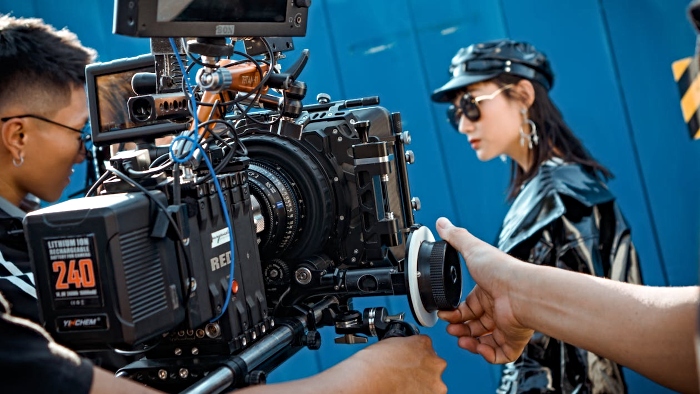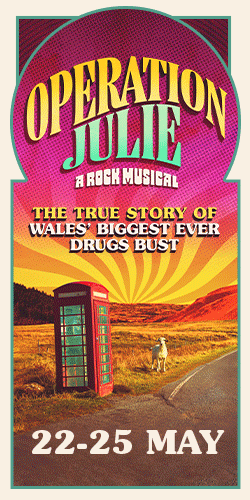
Popular film and television performers are some of the most recognizable faces on the planet, and their roles have the potential to be the most lucrative in the industry.
However, acting is not the only rewarding profession in the entertainment industry.
For those who want to pursue a career in the diverse world of acting, there are numerous distinct roles behind the camera as well as in the theatre that require technical as well as creative skills, such as theatre makeup artist, costume designer, lighting designer and more.
In this article, we teamed up with experts from job aggregator Jooble to take a closer look at some of the job opportunities available for a full-time career in the movie and theatre industry.
1. Film director
Film directors oversee all areas of the creative process. Their input is essential to the success of any movie. Apart from the actual job of directing the performances of the actors on set, film directors also oversee the planning, execution, and post-production phases of filming.
Steps to becoming a film director:
● Get a degree or go to film school.
● Get real-world experience on a movie set.
● Produce your own films.
2. Camera operator
Movie camera operators are responsible for capturing the actors’ performances on film. They use a variety of methods when shooting footage for movies in accordance with instructions from the director or cinematographer. They can employ a range of equipment and techniques such as rolling cameras, cranes, or remote-control cameras.
Steps to becoming a cinematographer:
Obtain a diploma in any of the following disciplines:
● Creative media production.
● Film and television production.
● Photography.
3. Film editor
Film editors collaborate closely with the director to ensure their work is consistent with the director’s vision for the film. They work with raw footage in the post-production phase to compile a finished product that is appropriate for release. This can entail rearranging the scenes’ sequence, shortening scenes, or deleting some scenes entirely. Successful editors pay meticulous attention to detail and contribute their creative skills and love of movies to the job.
Steps to becoming a film editor:
● Get a degree in film editing.
● Analyse movies, and study the approach taken by the experts.
● Enrol in a film internship program.
● Develop a portfolio.
4. Lighting technician
Correct lighting is essential to setting the right mood in any film, theatre or video production. Lighting technicians, also known as lighting designers, contribute to the production process through their technical expertise and creative flair. Many lighting technicians employed in the motion picture industry are licensed electricians.
Steps to becoming a lighting technician:
● Complete a university course or a specialist course offered by private training organisations.
● Enrol in an apprenticeship.
● Apply for a broadcasters’ training program.
5. Location manager
Location managers conduct research and scout for suitable filming locations all over the world. Their job is to coordinate the cast and crew within the allotted time and budget. The location manager acts as a liaison between the filmmakers and the property owner during filming. Location managers are well-organized, skilled problem-solvers, and capable of performing well under pressure.
Steps to becoming a location manager:
● Traditional education is not necessary; however, a cinema studies degree is advantageous.
● Begin your career as a production assistant or location scout.
6. Sound technician
A sound technician’s job is to operate the technical equipment required to capture, mix, and improve a movie’s audio quality. Working on set, coordinating with directors to meet their sound requirements, and overseeing the recording process are all part of the job. Sound technicians also work in post-production where they merge audio with visual content and modify sound effects.
Steps to becoming a sound technician:
● Complete an undergraduate degree or course in sound technology.
● Intern at a sound engineering company.
● Obtain practical experience by working on a set.
7. Fight choreographer
The physical combat scenes in films look extremely realistic but in actual fact are meticulously created and choreographed by fight directors, also referred to as fight choreographers. Scenes such as unarmed combat and sword fights are carefully choreographed and executed in collaboration with the actors and the director. The goal is to produce violent scenes that look dramatic and realistic while also keeping the actors safe. Fight directors frequently work as independent contractors.
Steps to becoming a fight choreographer:
● Get training in professional hand-to-hand combat.
● Earn credentials with the Academy of Performance Combat, the British Association of Dramatic Combat, or the British Association of Stage and Screen Combat.
● Register as an authorised fight director with Equity (the theatre union).
8. Make-up artist
Makeup artists produce realistic special effects and makeup for performers who act in film, television or the theatre. They often work according to the script and make adjustments or additional applications during filming. Make-up artists ensure that actors in a movie, television or stage production look true to the time period, place, and character they are portraying. They add a significant aesthetic element to the characters. Careful attention to detail, as well as a thorough knowledge of makeup, is necessary for this position.
Steps to becoming a make-up artist:
● Enrol in a specialised degree in cosmetics or beauty treatment.
● Gain hands-on experience.
● Create a portfolio.
● Network with people in the business.
9. Set designer
Set designers are responsible for the design and construction of the backdrops for movies, TV shows, and stage productions. Working with directors, producers, costume designers, and other crew members, is all part of the role. Set designers collaborate closely with directors to create a set that not only has visual appeal but also fits in with the director’s vision for the production. Set designers need to possess a thorough understanding of the visual arts, have design expertise, and be creative.
Steps to becoming a set designer:
● Earn a bachelor’s degree in theatre or fine arts.
● Gain practical experience by helping out on sets in community theatres or volunteering for on-campus plays.
● Intern with professional theatre companies.
Closing Thoughts
The world of acting is a truly diverse and exciting industry to be part of. It offers endless opportunities for actors, directors, producers and other creatives who are passionate about the art form.
With so many different roles available in this sector, there’s something out there for everyone no matter what their background or experience level may be.
(Main pic pic Lê Minh – pexels licence free)

















Recent Comments